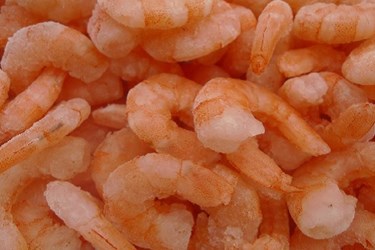Cargill Searches For Answers As Wholesalers Feel The Pinch Of Skyrocketing Shrimp Prices
By Karla Paris

In December 2009, wholesale shrimp cost just under eight dollars per pound. Now, the price has more than doubled to nearly seventeen dollars per pound, largely in part to Early Mortality Syndrome
One of the main culprits behind the rapid rise in shrimp prices during the last four years points to a disease known as Early Mortality Syndrome (EMS). EMS is caused by a bacterial agent, which is transmitted orally, colonizes inside the shrimp’s gastrointestinal tract, and produces a toxin that causes tissue destruction and dysfunction of the shrimp’s digestive organ known as the hepatopancreas. The disease has been particularly difficult on Asian shrimp markets, where entire schools of shrimp are succumbing to the disease.
The University Of Arizona’s (UA) School of Animal and Comparative Biomedical Sciences notes that EMS often kills the young shrimp shortly after they are added to farming ponds with a mortality rate of about 80 to 90 percent immediately following stocking. This could potentially wipe out an entire population of shrimp, according to UA’s notes.
The market hasn’t fully felt the full impact of higher shrimp prices caused by a tight supply and a viable solution to EMS, but that has not stopped food processors, yet. Many industry partners are actively engaging in the effort to find an effective way to manage this disease and stop its impact on profits.
Cargill’s animal nutrition business, a global feed and nutrition company, has hosted multiple workshops to enable discussions on key challenges in addressing EMS including quality larvae (healthy young animals), best practices at shrimp farms, along with environmental, nutritional, and aquatic health in order to help producers deal with EMS causing mass mortalities at cultivated shrimp farms worldwide.
Framelco, a Netherlands-based manufacturer of feed additives, has been testing new products to fight EMS as well. The company is working with several research groups in order to find a solution to combat the disease. A specific blend of patented 1-monoglycerides has been developed to fight both the viral and bacterial agents causing the disease. The Framelco team successfully produced the first EMS-free cycle on an infected farm earlier this year.
Shrimp exporter Minh Phu Corp is combating EMS on its farms by using Biofloc technology (BFT), which controls microorganisms in water that have not been changed in the farming process. Results have proven to be good against EMS on shrimp since the practice began in December of last year.
